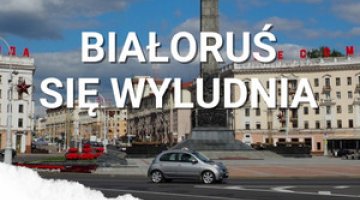Further rise in public discontent in Belarus
On 22 June, many Belarusian towns once again saw public demonstrations organised through social networking websites. These protests have been cyclical in nature, and are gathering more and more participants. The growing popularity of these demonstrations shows a progressive increase in the public’s dissatisfaction with the deteriorating economic situation. And although for the moment the Belarusian people are not ready to take part in street demonstrations, the growing frustration may lead to a wider outbreak of public discontent in the next few months.
The demonstrations were attended by several thousand people in Minsk, but numbers were in the hundreds or even just dozens in smaller cities; demonstrations took place in about 40 Belarusian towns overall. The protest action is being organised under the slogan ‘Revolution via the social network’ with the aid of social websites, and have been taking place every Wednesday. The participants have not made any political demands and do not use any symbolism; they have limited themselves to silent marches and intermittent applause. The police have not yet developed effective methods to combat these incidents, and have tried to pacify them as if they were typical opposition demonstrations. On 22 June about 450 people were detained across the country, and cases of beatings were also reported. Despite this, the protests’ organisers have called for the demonstrations to be repeated in the coming weeks. Every time the protests bring together more and more participants and include new locations; this is the public’s reaction to the deteriorating economic situation in Belarus, particularly the price rises and the lack of availability of foreign currencies. This trend has been confirmed by the results of a June survey by the Belarusian independent public opinion research centre NISEPI, in which as much as 81% of respondents acknowledged that the Belarusian economy is in crisis. 44% of respondents blamed this state of affairs on President Alyaksandr Lukashenka, and only 29% expressed a willingness to support the current president in the elections, his worst result since spring 2003. It seems that the social discontent will continue to rise, which will increase the number of participants in street protests, unless the government decides on another brutal wave of repression. <kam>





